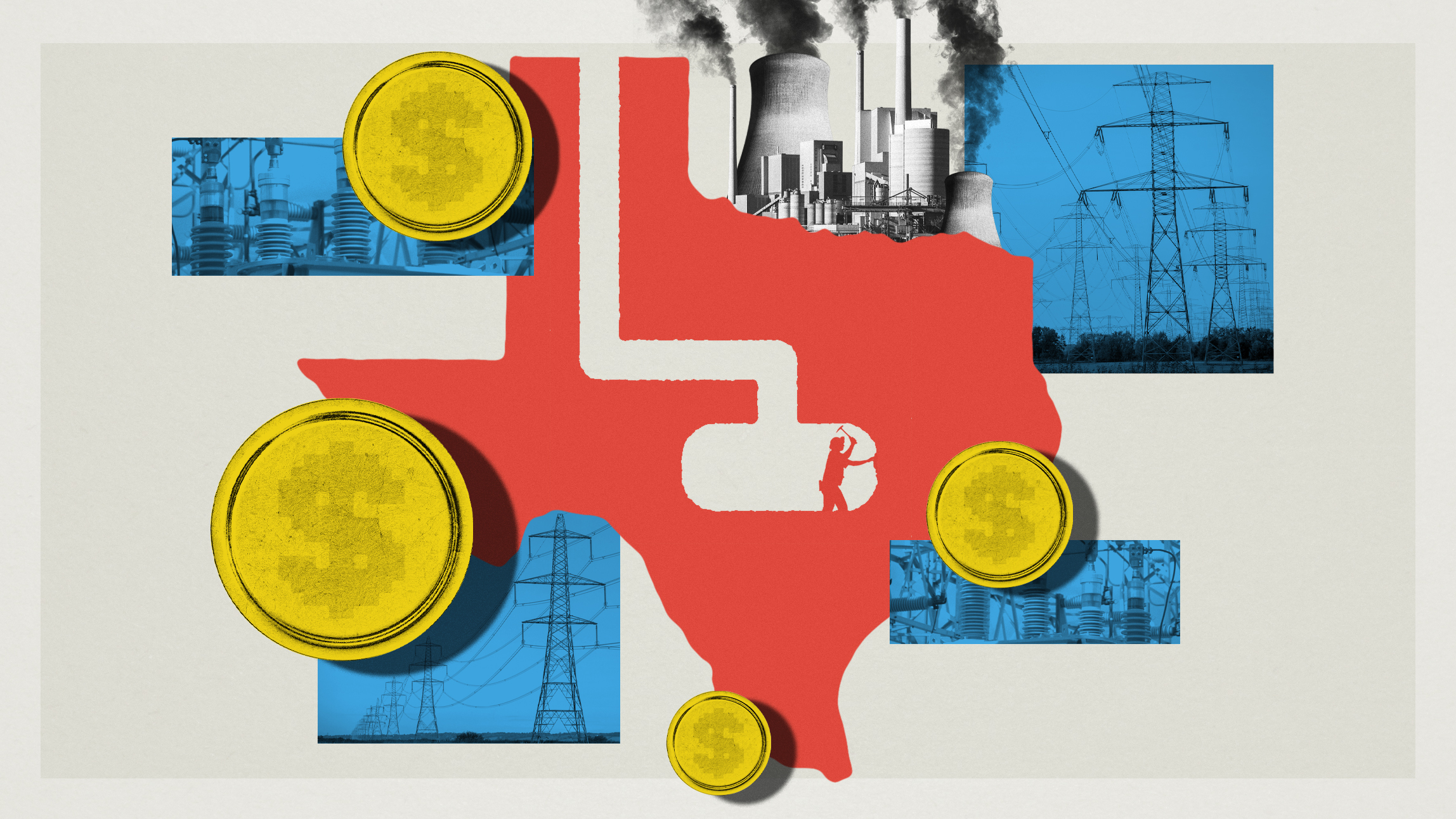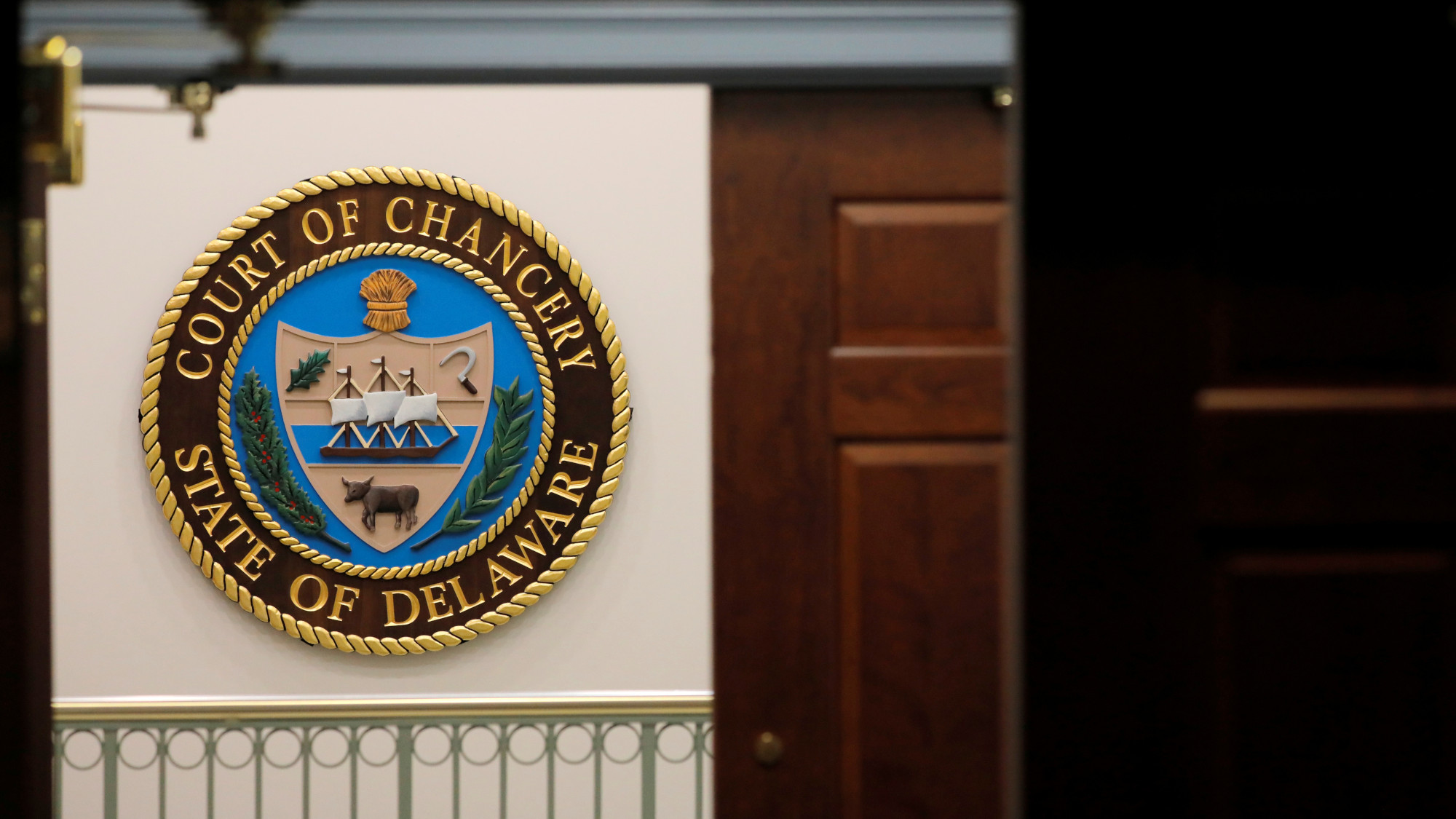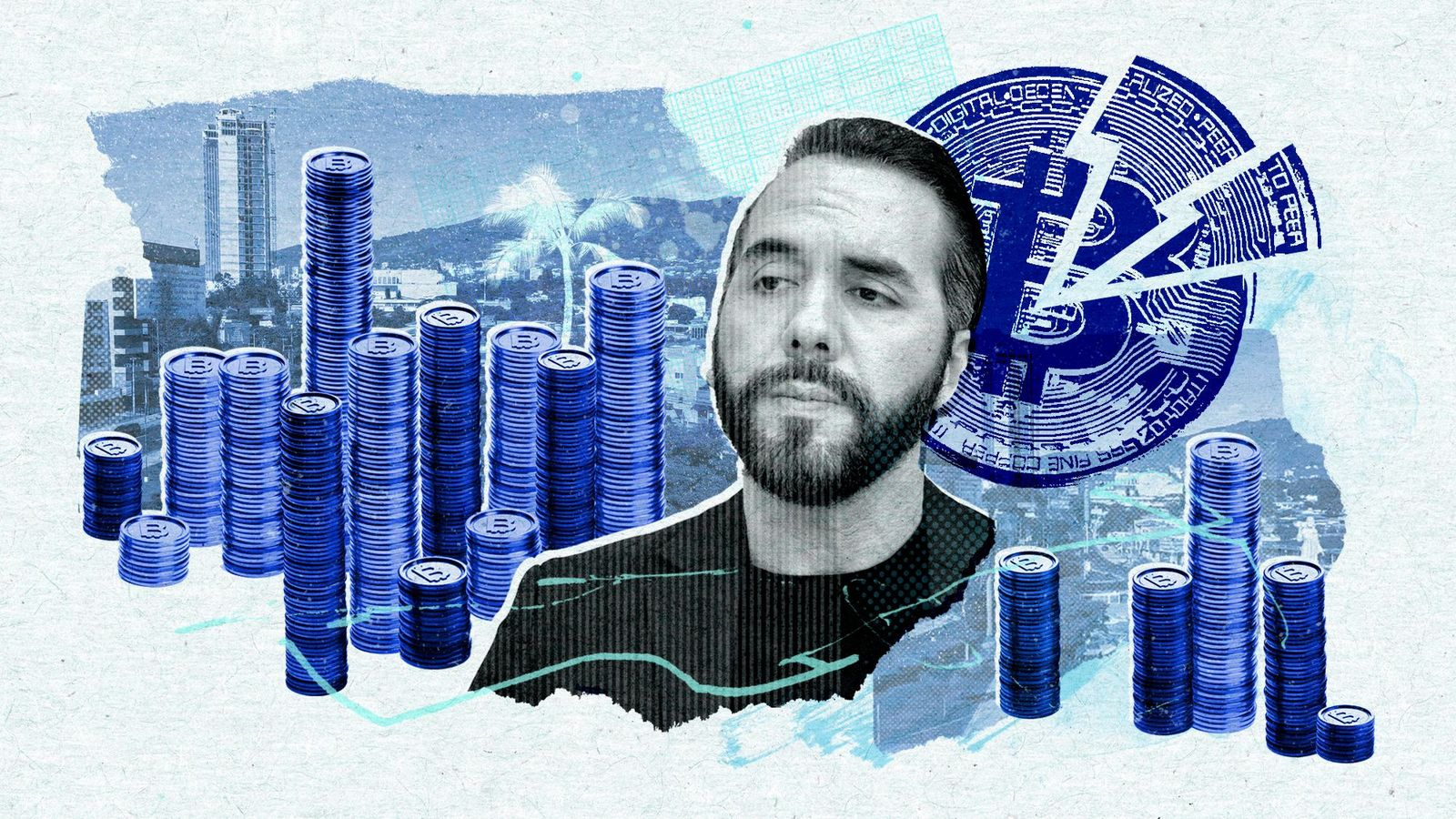How voracious Bitcoin mining is messing with Texans
Texas has declared itself open for Bitcoin mining. The state's energy grid — and its customers — are feeling the strain.


A free daily email with the biggest news stories of the day – and the best features from TheWeek.com
You are now subscribed
Your newsletter sign-up was successful
Texas has declared itself open for Bitcoin mining, an energy-intensive endeavor that involves warehouses of powerful computers trying to solve complex mathematical problems to unlock valuable cryptocurrency tokens. Texas also has an increasingly strained power grid that serves only Texas and keeps failing or threatening to overload during winter storms and summer heatwaves.
This combination of Bitcoin miners' voracious appetite for energy and the finite and capricious quantity of power produced in Texas has led to massive cryptocurrency mines earning money for agreeing to shut down in emergencies, raking in more money for shutting down for brief periods, and leaving Texas residents to foot the bill, The New York Times reports. Here's what you need to know about how Bitcoin mining is hurting — or helping — Texas energy customers.
How much energy do Bitcoin mines use?
A lot. The biggest Bitcoin mine in the U.S. — operated by Riot Platforms in an abandoned Alcoa aluminum smelting plant in Rockdale, Texas, about an hour outside of Austin — uses the same amount of electricity as the nearest 300,000 homes, the Times reports. Add in the Bitdeer mine about a mile away, and Rockdale's Bitcoin mines use more power than all the houses in a 40-mile radius.
The Week
Escape your echo chamber. Get the facts behind the news, plus analysis from multiple perspectives.

Sign up for The Week's Free Newsletters
From our morning news briefing to a weekly Good News Newsletter, get the best of The Week delivered directly to your inbox.
From our morning news briefing to a weekly Good News Newsletter, get the best of The Week delivered directly to your inbox.
A 1 megawatt mine consumes more energy per day than a typical U.S. home does in two years. Lee Bratcher, president of Bitcoin lobbying group the Texas Blockchain Council, estimates that Bitcoin miners use about 2,100 MW of power in Texas each day, while the Texas state comptroller's office said cryptocurrency mining operations consume 3,000 MW.
The Electric Reliability Council of Texas (ERCOT), which manages the Texas grid, "projects that mining operations could rise by 6,000 MW in the next couple years and potentially increase to 17,000 MW by 2030," or nearly what Houston — America's fourth-largest city — uses during peak demand, the comptroller's office said in an August 2022 report.
On top of that, "prospective crypto mining businesses have requested to put approximately 33,000 more megawatts in the ERCOT interconnection queue over the next few years (enough to power the whole state of Florida)," The Texas Observer reports, though nobody expects all of those requests to come to fruition.
Worldwide, in July 2022 Bitcoin mining used the annualized equivalent of 132 terawatt-hours of electricity, "comparable to the power consumption of Argentina," the Texas comptroller's office said. "A single bitcoin transaction used nearly 1,452 kilowatt-hours (kWh) of electricity, equal to the power consumption of an average U.S. household for nearly 50 days."
A free daily email with the biggest news stories of the day – and the best features from TheWeek.com
How have Bitcoin mines turned that into cold hard cash?
"Their massive energy consumption combined with their ability to shut off almost instantly allows some companies to save money and make money by deftly pulling the levers of U.S. power markets," the Times reports. A significant portion of the revenue large Texas crypto mines rake in comes from their participation in ERCOT's Responsive Reserve Service program, designed to protect the power grid during periods of heavy use.
The program pays them for their participation and their promise to power down if the grid approaches blackout levels. "In practice, they rarely are asked to shut down," the Times reports. "Several of the companies are being paid through these agreements a majority of the time they operate. Most years, they are asked to turn off for only a few hours, at which point they are paid even more."
Bitcoin miners can also avoid fees Texas charges to maintain and bolster the power grid by strategically powering down during peak demand, when those fees are assessed. And when power prices are high, the miners can also shut down and resell their allotted electricity — which they prepurchase at low rates — for hefty profits.
The Times gave two examples of how this works. During 2021's Winter Storm Uri, during which about 40 Texans froze to death during extended blackouts, ERCOT paid Bitdeer's Bitcoin mine in Rockdale an average of $175,000 an hour for not operating, earning the company more than $18 million over four days — "from fees ultimately paid by Texans who had endured the storm," the Times adds. Another Bitcoin company made tens of millions reselling electricity during Uri.
During one day of a June 2022 heatwave, when Riot was earning $342,000 a day mining Bitcoin at its Rockdale facility, it also earned $42,000 from midnight to 4 a.m. for participating in the Responsive Reserve Service program and saved $5.5 million in fees by shutting down from about 4 a.m. to 6:30 a.m. In July 2022, The Texas Observer adds, the same Riot Bitcoin facility earned more from curtailing energy use, $9.5 million, than the $5.6 million in profit it earned mining Bitcoin.
For all of 2022, the Times reports, Riot made $9.3 million from participating in the blackout-prevention service (despite being asked to reduce power for only about 3.5 hours), saved about $27 million in potential fees, and earned roughly $18 million from reselling electricity to other customers. Riot earned $156.9 million from Bitcoin mining last year.
Is this how the Texas grid is supposed to work?
ERCOT told the Times it "does not discriminate based on the type or activity" of the companies that sign up for its Responsive Reserve Service program. "We want to be able to serve any business that wants to do business in Texas," Pablo Vegas, ERCOT's new CEO, said in November. "And that includes crypto miners."
"There's a set of rules that exist," Carey King, assistant director of the Energy Institute at The University of Texas at Austin, told the Observer. And the crypto miners do "fit the definition of being able to provide ... emergency response services."
"I think they're exploiting the system," Severin Bornstein, a professor at the University of California, Berkeley, told the Times. "But they will say, 'You know, the system was already there,' and I'm sympathetic to that in some ways."
How does this make energy more expensive for regular Texans?
The cost of Bitcoin miners reselling electricity during peak demand falls on consumers, University of Houston energy economist Ed Hirs tells the Times. "Ironically, when people are paying the most for their power, or losing it altogether, the miners are making money selling energy back to Texans at rates 100 times what they paid."
There's also a cost from the miners' enormous power consumption. Bitcoin miners say they set up camp in areas where they can use otherwise unusable renewable energy, but their energy needs are so great they actually get 85 percent of their energy from coal and natural gas plants, causing "as much carbon pollution as adding 3.5 million gas-powered cars to America's roads," the Times reports, citing an analysis by tech nonprofit WattTime.
The 1,800 MW used by the 10 Bitcoin mines connected to the Texas grid require more expensive power generators to come online, and this "increased demand has caused electric bills for power customers to rise nearly 5 percent, or $1.8 billion per year," the Times reports, citing a simulation performed by energy research and consulting firm Wood Mackenzie. "In West Texas, where several Bitcoin mines have settled, bills have increased by nearly 9 percent."
A group of seven federal lawmakers, including Sen. Elizabeth Warren (D-Mass.) and Rep. Al Green (D-Texas), asked ERCOT about the state's cryptocurrency boom and power consumption last fall. "Given the impacts of crypto-mining on the climate, the grid, and to ratepayers, ERCOT's support for this industry is irresponsible and highly concerning," they wrote.
"It's a massive financial burden to Texans," Wood Mackenzie's Ben Hertz-Shargel told the Times. And because of how the Texas market operates, the increases are steepest for residential customers. Riot, for example, told investors that due to its various strategies, it paid 2.96 cents per kilowatt-hour last year. "By comparison, the average price for other industrial businesses in Texas was 7.2 cents," the Times reports. "For residents, it was 13.5 cents."
What do Bitcoin proponents say?
Bitcoin miners and their supporters highlight the benefits they bring to rural communities and argue that their sizable energy usage will encourage the construction of more power plants, especially wind and solar generation that isn't yet able to circulate on the grid due to a lack of transmission lines. The Bitcoin companies also say the criticism of them is unjust.
The analysis cited by the Times "could be used to attack any industry that consumes power," said David Fogel, the chief executive of Coinmint. "I think the entire notion of singling out specific industries like this is unfair."
"The thing about crypto is that they're really not doing anything that is useful," counters Molly White, a software engineer and cryptocurrency researcher. "It is primarily used for speculation. I think that's important to realize. And that is somehow worth the electricity usage of small countries? That blows my mind."
Is Texas doing anything to addresses Bitcoin mining's power consumption?
Yes. The Texas Senate unanimously passed legislation in April that would cap Bitcoin miners' participation in ERCOT's demand response program at 10 percent, require them to shut down during peak demand anyway, and eliminate tax incentives — and the Bitcoin lobby is working hard to make sure it fails in the House. Bitcoin boosters are pushing a "Don't Mess With Texas Innovation" campaign aimed at stopping this "anticompetitive" bill, SB 1751.
The Texas Senate also sent the House a bill that aims to stabilize the power grid by building natural gas–powered power plants that could generate up to 10 gigawatts of electricity in emergency situations. The Senate touted estimates that it would cost $10.8 billion to build the plants, but an estimate by the quasi-government Lower Colorado River Authority said it could cost $18 million. It isn't clear if the state would pay for the backup power generators with reserve funds or have ERCOT pass the costs onto energy customers.
The proposal, a priority for Lt. Gov. Dan Patrick (R) "has many opponents," KUT Austin reports. "Environmental groups are concerned with the amount of extra carbon dioxide-emitting fossil fuel generation it would lock into the state's energy mix. Existing power plant companies say it would destroy the Texas competitive energy market. Meanwhile, consumer advocates point out it would greatly increase already-rising Texas electricity bills."
How did Texas end up with all these Bitcoin mines in the first place?
Basically, Texas invited Bitcoin miners in, and they accepted, drawn in by cheap energy and comparatively few regulations. They need to go somewhere. Bitcoin mines used to be centered in China, but due in part to the industry's massive energy consumption, Beijing declared crypto mining "undesirable" and banned it in 2021. Many miners moved to Iran and Kazakhstan, which also cracked down. Texas rolled out the red carpet.
"Texas will be the crypto leader," tweeted Gov. Greg Abbott (R), who also hosted the Texas Blockchain Council at the governor's mansion. ERCOT's former chief declared himself "pro-Bitcoin." For the Bitcoin miners, "the main attraction is cheap wholesale electricity prices," said UT's King.
"Cryptocurrency mining can operate from anywhere in the world," the Texas comptroller report noted. "It is not bound by transportation networks or access to raw materials or a specialized workforce. What its data centers do require is a massive amount of electricity to cool and operate the mining machinery, and Texas provides an attractive draw for such needs." And if that ever changes, they can move on to somewhere else, leaving Texas with a whole lot more power.
Peter has worked as a news and culture writer and editor at The Week since the site's launch in 2008. He covers politics, world affairs, religion and cultural currents. His journalism career began as a copy editor at a financial newswire and has included editorial positions at The New York Times Magazine, Facts on File, and Oregon State University.
-
 How the FCC’s ‘equal time’ rule works
How the FCC’s ‘equal time’ rule worksIn the Spotlight The law is at the heart of the Colbert-CBS conflict
-
 What is the endgame in the DHS shutdown?
What is the endgame in the DHS shutdown?Today’s Big Question Democrats want to rein in ICE’s immigration crackdown
-
 ‘Poor time management isn’t just an inconvenience’
‘Poor time management isn’t just an inconvenience’Instant Opinion Opinion, comment and editorials of the day
-
 Texas is trying to become America’s next financial hub
Texas is trying to become America’s next financial hubIn the Spotlight The Lone Star State could soon have three major stock exchanges
-
 Why is crypto crashing?
Why is crypto crashing?Today's Big Question The sector has lost $1 trillion in value in a few weeks
-
 What are stablecoins, and why is the government so interested in them?
What are stablecoins, and why is the government so interested in them?The Explainer With the government backing calls for the regulation of certain cryptocurrencies, are stablecoins the future?
-
 The world's 10 richest families
The world's 10 richest familiesIn Depth Luxury retailers, hereditary monarchs and the heirs to the Walmart fortune dominate the list of the world's wealthiest clans
-
 Exurbs: America's biggest housing trend you haven't heard of
Exurbs: America's biggest housing trend you haven't heard ofUnder the Radar Northeastern exurbs were the nation's biggest housing markets in 2024
-
 Texas vs. Delaware: See you in court
Texas vs. Delaware: See you in courtFeature Delaware risks losing its corporate dominance as companies like Tesla and Meta consider reincorporating in Texas
-
 The collapse of El Salvador's bitcoin dream
The collapse of El Salvador's bitcoin dreamUnder the Radar Central American nation rolls back its controversial, world-first cryptocurrency laws
-
 What's Jeff Bezos' net worth?
What's Jeff Bezos' net worth?In Depth The Amazon tycoon and third richest person in the world made his fortune pioneering online retail
